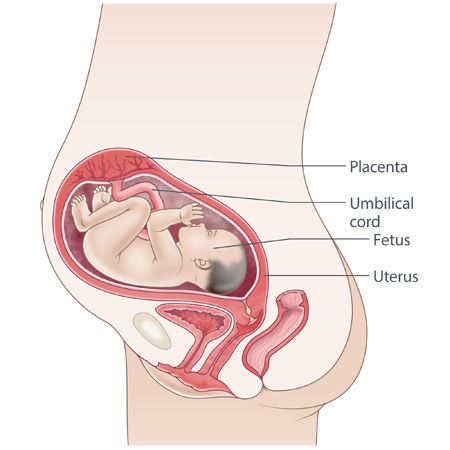You at 28 weeks pregnant
This is the start of the third trimester. You might want or need to start taking things easier around now, if you can.
From 28-36 weeks of pregnancy, your antenatal appointments are likely to be every 2-3 weeks.

Work
You might start thinking about when to stop working while pregnant. It can be good to stop work at 34-36 weeks, but it's OK if you need to stop earlier or work longer.
Depending on your job and work duties, you might need a doctor's certificate to keep working past a certain point in your pregnancy.
Vaccination against whooping cough and RSV infection
Whooping cough and respiratory syncytial virus (RSV) are very contagious and dangerous illnesses for babies. If you get immunised, it can help to protect your baby against these illnesses.
It’s recommended that you have:
- a whooping cough vaccination between 20 and 32 weeks of pregnancy
- an RSV vaccination between 28 and 36 weeks of pregnancy.
In Australia, these vaccinations are free for pregnant women. Your midwife or doctor can organise them for you.
It’s a good idea to speak with your midwife, doctor or immunisation provider about recommended vaccinations during pregnancy.
Pregnancy health problems
Common third trimester issues include:
- swollen hands and feet – drink as much water as you feel like, get your feet up as much as you can, and take off any tight rings or other tight jewellery
- breathlessness – your uterus is pushing further up into your ribcage, which means there’s less room for your lungs
- heartburn and reflux
- lower back and leg pain – try to stand up straight and tilt your pelvis forward
- leaking breasts, as your breasts start producing colostrum.
If you suddenly experience any symptoms of pregnancy health problems or your symptoms feel severe or won’t go away, see your doctor or midwife as soon as possible.
Feeling stressed, worried or sad
Pregnancy check-ups are a chance to talk about any worries or problems at home. What’s happening and how you’re feeling are as important as physical symptoms or health problems.
If you feel very stressed, worried or sad, it can affect your health and your baby’s health. If you need it, your doctor or midwife can refer you to another health professional like a counsellor or put you in touch with support services.
More than mood swings
Pregnancy is a powerful and life-changing experience for all parents-to-be. It can stir up some strong, deep and unexpected emotions and issues.
Hormone changes can affect your mood or energy levels, or there might be occasional days when you or your partner feels flat or irritable. This is normal.
But emotional changes that last longer than 2 weeks and get in the way of your or your partner’s daily life could be signs of antenatal anxiety, antenatal depression or another problem.
Make an appointment with your doctor or midwife to discuss changes like these. You could also call Lifeline on 131 114, Beyond Blue on 1300 224 636 or PANDA on 1300 726 306.
Your baby when you’re 28 weeks pregnant
Your baby is getting bigger:
- Your baby measures about 25 cm from head to bottom and weighs about 1 kg.
- Some babies prefer the breech position at this time – head up, bottom down. Don’t worry about this just now – most babies move to the head-down position in time for their birth.
- Your baby’s immune system is developing.
- Your baby is covered in vernix – a white, creamy substance that protects their skin from amniotic fluid.
- Your baby’s eyelashes are growing.
- If you have a boy, his testicles are lowering into his scrotum.
Babies born at this stage are premature. They have a good chance of survival when they have special care and equipment.
Your baby’s movements should be regular and strong. If you notice a change in the number or strength of your baby’s movements at any stage, call your doctor, midwife or hospital immediately.